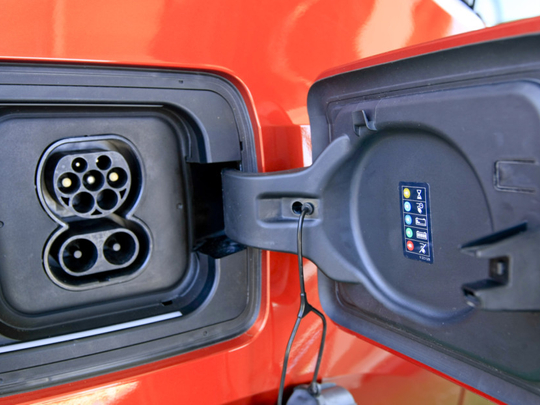
Dubai: Residents in Dubai say more than electric vehicle charging stations is needed to convince them to make the switch to hybrid or electric cars.
“Introducing these charging stations is a great step by the government but I don’t think it would encourage the public, including myself, to switch to the electric car because they are not as convenient as regular cars,” said Jordanian Bassem Mohammad, who works in the advertising field.
Mohammad said charging the car can take up to 30 minutes, which can be problematic if you are late for work or an appointment. So he would rather pay for petrol, which he said is relatively cheap in the UAE.
“Also, 16 charging stations that are restricted to Dubai are not enough. What if I get stranded in Sharjah or Abu Dhabi where there are no charging stations?”
Mohammad said he would only consider purchasing an electric car when it becomes more common in the country because then it would be easier to find spare parts and the charging stations would be located everywhere.
Palestinian mechanical engineer Ahmad Al Alami, on the other hand, said he would only consider a hybrid car and not an electrical one.
“I would only consider a hybrid because an electric car is not convenient at all. It needs to be charged every 20,000 to 25,000 miles and charging takes time as well. A hybrid, on the other hand, which is part electrical part petrol, is more convenient because the petrol engine can charge the electrical engine of the car,” said Al Alami.
Al Alami said he would also consider the car because it can travel more miles for less money so, in the long run, he would be able to break even with regard to the car cost.
“To encourage more people to purchase these environmental cars, I think they should be provided with incentives. In the UK, for example, they exempt people who buy these cars from importation fees and congestion charges,” said Al Alami.
Egyptian IT professional Mohammad Radi, 25, said that this is a great move by Dubai, “Dubai is always keeping up with the latest trends in technology.”
However, Radi, who is a car enthusiast, said he won’t buy an electric or hybrid car any time soon. “The problem with electric cars is that the affordable ones do not look good or have great specifications, and the great ones that I would have switched for, like the BMW i8, the Fisker or the Mc Claren P1 and the Tesla, are way above my budget.”
He said that if in the future there are “cool-looking” hybrid cars within his budget, he might consider, “but I would not buy a fully electrical car, because I’d like the option of switching back and forth between the two options. For example, I’d like to be able to drive in electrical mode when in traffic because it’s efficient, and switch back to the normal mode when I am on a highway.”
Another drawback in Radi’s opinion that would discourage him from buying an electrical car is that it takes time to charge.
Emirati motorist Sawsan said she rented a hybrid car for one week and only had to refuel it once.
She did not experience any problems on the road, but she said the car did have some setbacks.
“The setback is finding technicians who know how to repair electric and hybrid cars. Also, most electric and hybrid cars are saloon cars and not 4x4s, so this means you can’t go to the desert and have to stick to the city.”








